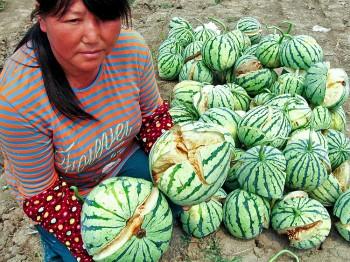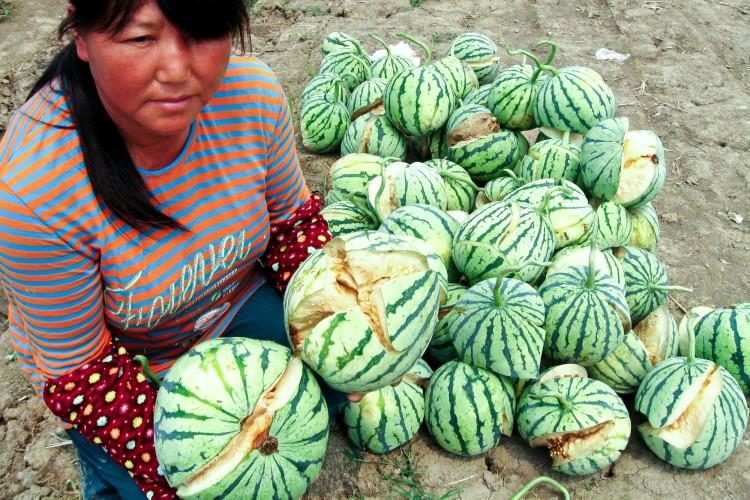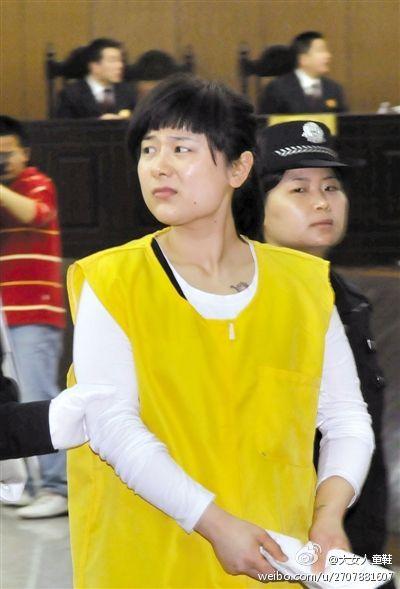The Fallout from China’s Exploding Watermelons
Tainted watermelons raised yet another consumer safety red flag. The phenomenon of “exploding watermelons,” a novelty that did not capture the interest of the Chinese public as much as it did in the West, came as another dramatic challenge to the quality and safety of foods from China last week—and just as the authorities were boosting domestic propaganda on improvements to the food supply chain.

Split-open, unripened watermelons on May 13 in Yanling Township, Danyang City, Jiangsu Province. Epoch Times Photo Archive
|Updated:





